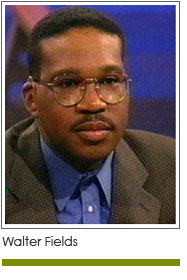 Young people attending college should have the comfort of knowing that their institution is committed to maintaining a safe environment for its students in all campus related activities. Sadly, at Florida A & M University, Robert Champion, drum major for the university’s famed “Marching 100” band, was left exposed to his institution’s failure to safeguard its students. Champion died in November after experiencing a brutal beating onboard a band bus at a football game in Orlando, Florida.
Young people attending college should have the comfort of knowing that their institution is committed to maintaining a safe environment for its students in all campus related activities. Sadly, at Florida A & M University, Robert Champion, drum major for the university’s famed “Marching 100” band, was left exposed to his institution’s failure to safeguard its students. Champion died in November after experiencing a brutal beating onboard a band bus at a football game in Orlando, Florida.
Shockingly, Florida A & M University is now blaming Champion for his own death. According to the Orlando Sentinel, the university filed a 23 page motion seeking to dismiss a wrongful death lawsuit filed by Champion’s family. According to the Sentinel, in the filing the university insists, “Respectfully, as a 26-year-old adult and leader in FAMU's band, Mr. Champion should have refused to participate in the planned hazing event and reported it to law enforcement or University administrators.” Somehow, FAMU seeks to explain away its own culpability by laying blame at the victim’s grave and suggesting his ripe-old age of 26 should have subverted a culture of hazing that has been prevalent at the university. It is a shameful abdication of responsibility on the part of Florida A & M University. When did doing the right thing become such a difficult proposition for our institutions and leaders?
There are those who will point to the university’s claim as simply a necessary defense strategy; as a way to insulate itself from deep damages. I don’t buy it. To me, it is a continuation of the willful denial of the corrosive environment that existed in band culture at FAMU and the complacency of its leadership, and tolerance of hazing. Mr. Champion’s age could not have prevented his submission to a hazing ritual that was apparently embedded in the tradition of that band, and familiar to its administrative leadership. The university was well aware of incidence of hazing but now seeks to put responsibility on the shoulders of Robert Champion. There is a reason the university president was forced to resign, as well as the longtime leader of the fabled band.
By taking this approach to confronting its problems, rather than the more humane act of coming to an expedient settlement with the Champion family, Florida A & M not only sets a bad example for its university family but by extension tarnishes other historically Black colleges and universities (HBCUs) by association. Marching bands are a large part of HBCU culture and history, and on many campuses serve as the most visible marketing tool for these institutions. HBU alumni and the African-American community, point with pride to the musical legacy of these schools and the notoriety their bands bring them. In many cases, the halftime show of a football game at a Black college is as eagerly anticipated as the kick-off. Florida A & M, by its poor handling of the death of Robert Champion, unfairly or not, now brings greater scrutiny to these institutions and bands across the country.
Though the conduct of FAMU’s “Marching 100” might be the focus, the issue is much bigger. This is about leadership and the protection of our young men and women. It saddens me that one of our most visible institutions is defending its own failure by insinuating that a student in his mid-twenties should have known better. I am sure it brings little comfort to the parents of Robert Champion that the university they entrusted with the education and welfare of their son now claims essentially that he died in a FAMU band uniform by his own choosing. It might be a sound legal defense, though I doubt it, but it is bound to cause irreparable harm to the university’s image, its ability to recruit students, credibility with the philanthropic community and its standing among Florida’s political leadership. Most damaging will be the hit FAMU’s legacy will take and is already taking.
I am hopeful that a voice of reason and conscience will rise among FAMU’s leadership and do the right thing by the Champion family. Beyond a reasonable settlement, an apology is owed the parents of Robert Champion for the shameful characterization of their son by his university.
Walter Fields is Executive Editor of NorthStarNews.com.
When did doing the right thing become such a difficult proposition for our institutions and leaders?












